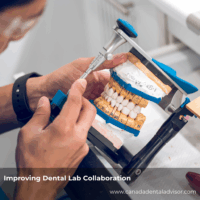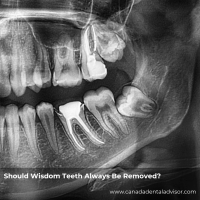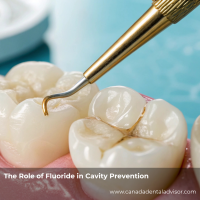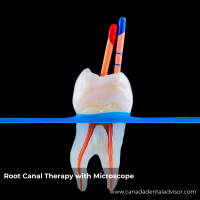The First 24–48 Hours: What You’ll Likely Experience
Just like Sarah, most patients experience some mild discomfort or sensitivity after a root canal. This is your body’s natural response to the procedure, and it usually subsides within a couple of days.
Common Post-Treatment Symptoms:
-
Mild to moderate tenderness in the treated area
-
Slight swelling of gums
-
Sensitivity when biting down
-
A feeling of “awkwardness” in the bite due to temporary filling
Over-the-counter pain relievers, such as ibuprofen or acetaminophen, usually do the trick. Your dentist might also prescribe antibiotics if there was an infection.
Why One-Size-Fits-All Advice Doesn’t Work
While general guidelines can help, every mouth is unique—and so is every patient. This is where individualized care plans make a difference.
Think of it this way:
-
Sarah had underlying gum disease, so her care plan included periodontal follow-ups.
-
Mike, a diabetic patient, needed closer monitoring to prevent delayed healing.
-
Jasmine had dental anxiety, so her dentist included regular check-ins to keep her at ease.
Without these tailored approaches, patients often fall into the trap of ignoring subtle signs, skipping follow-ups, or mishandling aftercare—all of which can jeopardize the success of the root canal.
The Power of Personalization: How It Helps
1. Improves Treatment Outcomes
When a care plan is tailored to your health history, oral habits, and lifestyle, it supports better healing. Your dentist can anticipate potential complications and adjust accordingly.
Examples include:
-
Adjusting medications based on allergies or sensitivities
-
Recommending specific oral hygiene tools based on dexterity or motor skill challenges
-
Monitoring adjacent teeth if structural weaknesses are present
2. Enhances Patient Compliance
Let’s face it: when instructions feel generic, they’re easier to ignore. But when your dentist says, “This mouthguard will protect the crown we placed on your root canal-treated tooth—especially important because of your grinding habit,” you’re more likely to follow through.
Personalized care feels relevant—and relevance drives action.
3. Fosters Long-Term Oral Health
Root canals save teeth, but they don’t make them invincible. Customized care plans include maintenance strategies to extend the life of that treated tooth and prevent future problems.
This might involve:
-
Nutrition guidance to reduce decay risk
-
A fluoride rinse routine to strengthen enamel
-
Regular imaging to monitor for reinfection
By taking the time to understand each patient’s risks, dentists build plans that support lifelong oral wellness—not just short-term recovery.
The Role of Follow-Up Visits
Three weeks after her root canal, Sarah returned to her dentist. Her personalized plan had included a crown fitting to permanently protect the treated tooth. It was also a chance to check for healing progress.
This follow-up wasn’t just a formality—it was a safeguard.
Key Follow-Up Goals:
-
Confirm complete healing of surrounding tissues
-
Ensure permanent restoration (e.g., crown) fits comfortably
-
Reinforce home care techniques
-
Identify signs of complications early (like reinfection or bite imbalance)
Skipping this visit can undo weeks of recovery, which is why it’s a vital part of the care plan.
A Story of Transformation
Sarah once feared dental visits. But her post-root canal experience transformed that anxiety into confidence. She learned how to care for her mouth, understood the “why” behind every instruction, and felt empowered—not confused—by her dentist’s guidance.
Now, she brushes and flosses with purpose. She keeps up with cleanings. Most importantly, she hasn’t had a single oral emergency since.
That’s the magic of a personalized plan—it turns a one-time fix into a lifelong solution.
Conclusion: Your Mouth, Your Plan, Your Health
A root canal may end the pain, but it’s what happens next that defines your dental future. Don’t settle for generic advice. Ask questions. Work with your dentist to build a plan that fits your life, your habits, and your goals.
Because when care is personal, healing is powerful—and smiles last longer.
Frequently Asked Questions (FAQ)
1. How long does recovery from a root canal take?
Most people recover within a few days to a week. Discomfort is typically mild and temporary.
2. Do I always need a crown after a root canal?
In most cases, yes—especially for molars and premolars. A crown protects the treated tooth from fractures and restores full function.
3. What foods should I avoid after a root canal?
Avoid hard, crunchy, sticky, or extremely hot/cold foods until healing is complete and your final restoration is placed.
4. Can a root canal-treated tooth become infected again?
Yes, reinfection is possible if the tooth isn’t properly sealed or cared for. Regular checkups help detect problems early.
5. Is pain normal after a root canal?
Mild pain or tenderness is normal for a few days. Severe or persistent pain should be reported to your dentist.
6. Can I go back to work after a root canal?
Most patients can resume normal activities the same day or the following day, depending on comfort levels.
7. What does a personalized care plan include?
It may include tailored home care instructions, medication management, dietary suggestions, stress reduction strategies, and scheduled follow-ups.
8. How do I ensure long-term success after a root canal?
Stick to your care plan, keep up with dental visits, and maintain excellent oral hygiene.











Leave a Reply